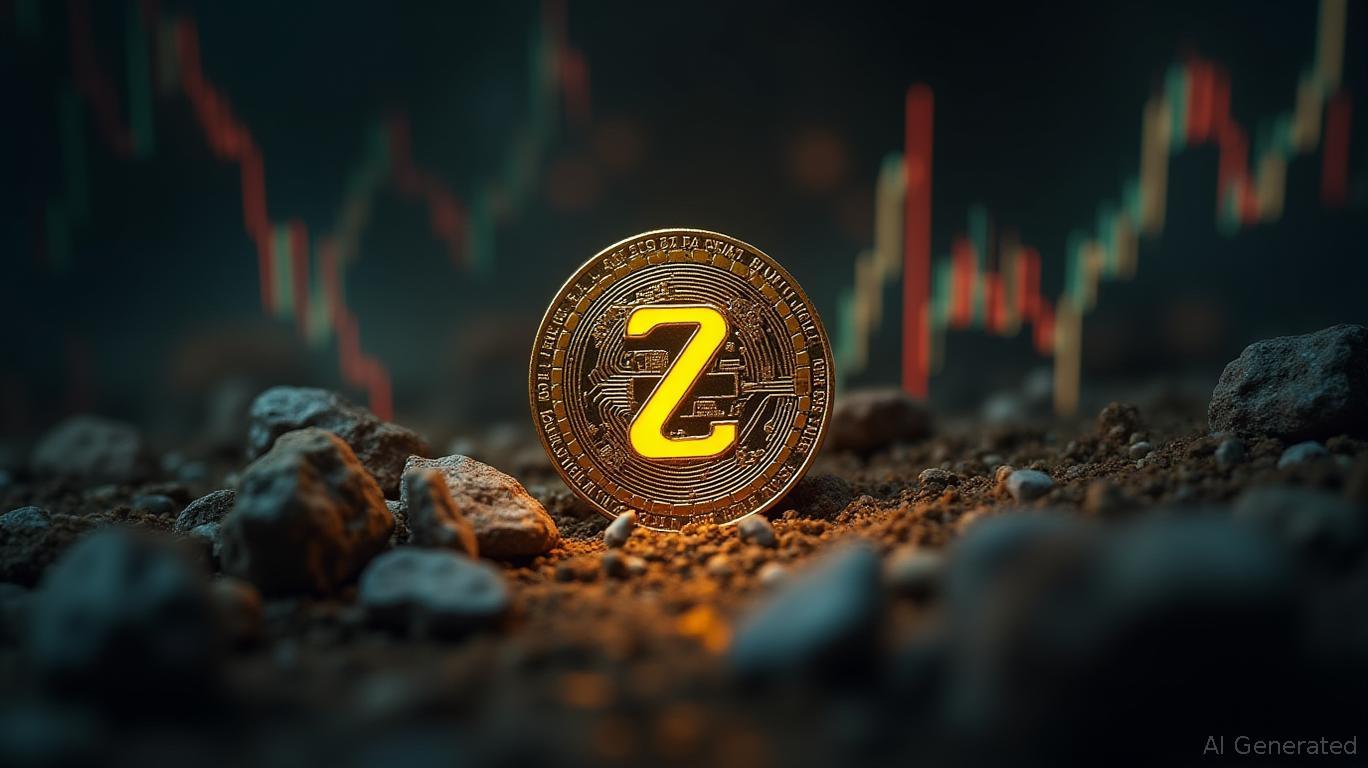Ethereum News Today: Buterin: The Ethereum Blockchain Remains Secure, While Off-Chain Trust Poses Risks
- Vitalik Buterin warns Ethereum's chain is secure against 51% attacks but off-chain systems like oracles and bridges face collusion risks. - Historical DeFi failures (bZx, Compound) highlight real-world losses from unverified off-chain data, costing millions in damages. - Ethereum's $3,934 price (Oct 2025) reflects short-term gains but 13.75% 60-day decline amid growing Layer 2 adoption and ETF speculation. - Buterin stresses need for on-chain verifiability as SEC scrutiny and validator trust challenges r
Vitalik Buterin, one of the minds behind
Buterin emphasized that Ethereum’s consensus layer blocks invalid transactions from being accepted after the fact, maintaining the blockchain’s fundamental security. Yet, this protection does not cover scenarios where validators act outside the chain’s transparent boundaries. For example, if a validator majority conspires to provide false off-chain information—such as manipulated price feeds or fake cross-chain confirmations—users could incur losses with no way to recover. Past events, including the 2020 failures of bZx and Compound, demonstrate the tangible consequences of these weaknesses, with oracle mishaps causing multimillion-dollar losses.

This alert comes as Ethereum’s market performance shows both advancement and obstacles. On October 26, 2025, Ethereum (ETH) was valued at $3,934, marking a 4.85% increase for the day but a 13.75% decline over two months, as reported by Cryptofront News. The platform’s total market value reached $474.89 billion, accounting for 12.63% of the crypto market. At the same time, Layer 2 solutions now process close to 90% of Ethereum’s transactions, reinforcing its function as a settlement layer while offloading execution to secondary networks. Experts anticipate ETH’s price could fluctuate between $3,200 and $5,000 in the next year, with optimistic forecasts reaching $6,500 if ETF investments and Layer 2 usage surge.
Buterin’s observations echo wider apprehensions about the reliability of validators in decentralized frameworks. The Ethereum Foundation has consistently promoted hybrid approaches that marry scalability with security, and this latest warning underscores the importance of strong protective measures. Solutions like Chainlink’s decentralized oracles—which compile information from various sources to minimize single points of failure—have been developed as partial answers. Still, Buterin insisted that developers should focus on ensuring on-chain verification, especially as validator-driven systems become more central to DeFi and cross-chain operations.
Looking forward, Ethereum’s community faces a crucial challenge. While its proof-of-stake system encourages honest validator conduct on-chain, off-chain vulnerabilities remain outside the reach of consensus safeguards. Regulatory oversight from organizations such as the U.S. Securities and Exchange Commission (SEC) could further influence how these risks are addressed, particularly for institutional users. For now, Buterin’s warning stands as a reminder: as blockchain technology advances, distinguishing between on-chain security and off-chain trust becomes increasingly vital.
Disclaimer: The content of this article solely reflects the author's opinion and does not represent the platform in any capacity. This article is not intended to serve as a reference for making investment decisions.
You may also like
Privacy-centric Zcash Rises as Regulatory Ambiguity Increases Interest Among Retail Investors
- Zcash (ZEC) surged 27% in a day, hitting $240.25, with a 378.9% monthly gain and $3.9B market cap. - Bitstamp CEO Barry Silbert highlighted ZEC's privacy appeal amid regulatory uncertainty and BlackRock's ETF rejection. - ZEC's zero-knowledge proof protocol drives demand for privacy-focused crypto amid rising regulatory scrutiny. - Analysts warn of potential corrections as ZEC trades above its 52-week average, testing rally sustainability. - The surge reflects investor interest in niche projects with str

Cardano News Today: Cardano's Approach to Domains: Balancing Centralization Issues with Web3 Goals
- Cardano Foundation seeks .ada and .cardano TLDs to strengthen brand control and enable Web2-Web3 interoperability, budgeting $700k for application and $350k annual registry costs. - ADA shows 70M whale accumulation and bullish technical signals (golden cross, triangle pattern), though recent 12% dip below $0.66 raises short-term correction risks. - T. Rowe Price's ADA-inclusive crypto ETF filing and SEC's 16 ETF decisions highlight growing institutional interest, while community debates TLD governance ce

Bitcoin Updates Today: Bitcoin's Bullish Trend: Institutional Investments and ETF Growth Strengthen Market Stability
- Bitcoin's bull market remains intact with institutional holdings and ETF adoption reinforcing long-term resilience, per FXStreet and BeInCrypto analyses. - U.S. BTC/ETH ETFs now manage $175B+ assets, with BlackRock's IBIT holding $86B alone, signaling institutional confidence in crypto as inflation hedge. - Dolphin wallets (100-1,000 BTC) control 26% of supply and show structural strength, though liquidity inventory has fallen to 8.3 months. - Tesla and SpaceX maintain $2.33B+ in Bitcoin reserves, with S

Bitcoin Updates: Production Slowdown and Accommodative Fed Policies Extend Bitcoin's Bull Market Through 2026
- Analysts like Raoul Pal link Bitcoin's bull cycle to ISM PMI stagnation below 50, predicting a 2026 peak as historical patterns suggest prolonged expansion. - Manufacturing struggles (high tariffs, weak demand) delay PMI recovery, historically tied to Bitcoin's upward momentum, with Q3/Q4 2025 peaks possible. - BTC's 92% YTD surge and low MVRV ratio (3.11) indicate undervaluation, while Fed's 1.77% TIPS yields and S&P 500 correlation (0.86) support liquidity. - Geopolitical risks (U.S.-China tariffs, Sou
